Established in June of 2020, the Professor of the Graduate Division (PGD) title is an honor available to UC San Diego retiring/retired faculty who are fully engaged in research and/or other departmental and campus activities, and who wish to continue to contribute to UC and UC San Diego with distinction after their retirement from official active faculty status.
Current Professors of the Graduate Division
-
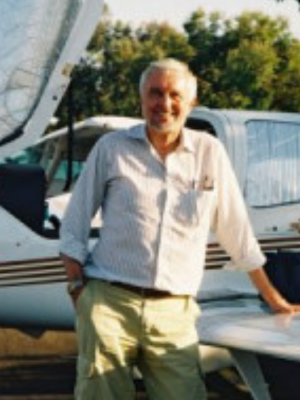
Professor Michael Buckingham
Scripps Institution of Oceanography
Previously a Distinguished Professor of Ocean Acoustics in the Marine Physical Laboratory at SIO, Dr. Buckingham continues his research program which includes serving as lead Principal Investigator for an Office of Naval Research-funded project and other research activities. Professor Buckingham serves as a PhD student mentor as well as performs important, informal advising and mentoring activities.
Buckingham’s research focuses on ocean acoustic propagation, ambient noise in the marine environment, and acoustic imaging. His experiments involve the identification of objects in the ocean using naturally occurring sounds, produced as a result of bubbles forming near the surface. This system, described as “acoustic daylight” uses an experimental electronic imaging system that reveals objects in the ocean by listening to ambient underwater noise and displaying the objects as a simple video image. His recent theoretical research concerns sound and shear wave propagation through saturated granular materials, notably marine sediments. He is the recipient of several awards, including the A.B. Wood Medal from the Institute of Acoustics, UK, the Pioneers of Underwater Acoustics Medal from the Acoustical Society of America (ASA), and the Gold Medal from the ASA.
Degrees: Ph.D. in Physics, University of Reading, England; BSc with honors in Physics, University of Reading, England.
-
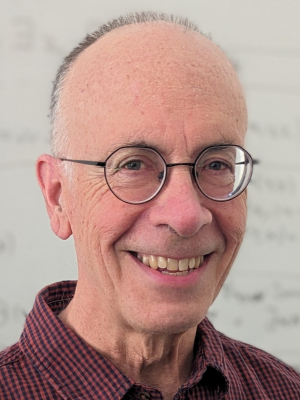
Distinguished Professor Samuel Buss
Department of Mathematics
Previously a Distinguished Professor of Mathematics and Computer Science, Dr. Buss is a leading figure in logic and theoretical computer science, specializing in proof complexity and computational complexity.
Dr. Buss has been recognized for his teaching excellence and service to the University and academic community, having supervised seven Ph.D. students, chaired the Mathematics Department, and served on numerous committees. His contributions have earned him several international awards, including receiving the Bernard Bolzano Honorary Award and being a Gödel Lecturer and an Eduard Cech Lecturer.
He is working on research including two major book projects, and he is the moderator of the Foundations of Mathematics (FOM) email list. He continues to engage in teaching and mentoring activities, including collaborating with other faculty, advising a graduate student, running the Math 268 Logic Seminar, and serving on Ph.D. committees in the CSE Department.
Degrees: Ph.D., Princeton University; B.S., Emory University
Learn more about Professor Buss’s work here. -
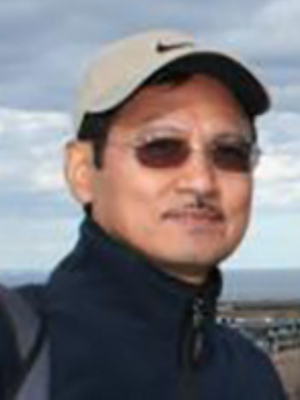
Professor Paterno Castillo
Scripps Institution of Oceanography
Previously a Professor of Geology, Dr. Castillo continues his active research program which includes his work as a co-Investigator and a mentor to a Principal Investigator on two recently funded National Science Foundation (NSF) projects. Professor Castillo continues to serve on graduate student committees.
Professor Castillo's research interests include:
- Petrology and isotope geochemistry of MORB and OIB
- Petrologic and tectonic evolution of the western Pacific
- Mantle geodynamics
Degrees: B.S., University of the Philippines; M.S., University of Akron; Ph.D., Washington University.
-
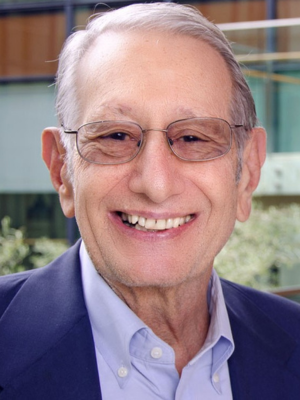
Distinguished Professor Edward A. Dennis
Department of Pharmacology
Professor Dennis has served as the Distinguished Professor and Chancellor’s Endowed Chair of Chemistry, Biochemistry and Pharmacology at the School of Medicine and Revelle College. He has over 430 publications; his research has focused on the structure/function/mechanism/inhibition of the phospholipase A2 superfamily and their role in lipid metabolism, inflammation, and especially developing novel lipidomics based enzyme assays and biomarkers for human metabolic and infectious diseases. He has served as Chair of the Academic Senate, Chair of the Department of Chemistry and Biochemistry for two different terms, Editor-in-Chief of the Journal of Lipid Research, Founder and Director of the LIPID MAPS Initiative, Board Chair and President of the Keystone Symposia, and Board Chair of the Gordon Research Conferences. He is a Guggenheim Fellow and the recipient of the American Society of Biochemistry and Molecular Biology’s Avanti Award in Lipid Enzymology; the European Federation for Lipid Science and Technology’s European Lipid Science Award; the Yale Medal; the American Chemical Society, San Diego Section, Distinguished Scientist Award; and the Bert Vallee Award in Biomedical Science from the American Society of Biochemistry and Molecular Biology.
Degrees: Ph.D. and M.A. in Chemistry, Harvard University; B.A. in Chemistry, Yale University;
Doctorate in Medicine (honorary), Goethe University; Doctorate (honorary), University of Lyon INSA
Learn more about Professor Dennis's work and contact information here or here.
-
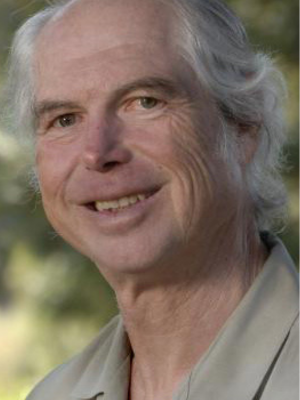
Professor Daniel Hallin
Department of Communication
Previously a Distinguished Professor of Communication, Dr. Hallin remains highly active in his research and continues advising Ph.D. students and serving on committees. He recently performed research on transnational pandemic communication. Several other research projects that he is working on significantly contribute to the intellectual mission and life of the Department and provide opportunities for work with students. These include the Journalistic Role Performance Project, based on surveys of journalists and content analysis in 37 countries, and continued work on comparative analysis of Latin American media systems, including a comparative project on anti-populism and the media in Latin America. His BioBib reflects his continued dynamic career with the publication of eight new journal articles (one jointly with one of our graduate students), four book chapters and miscellaneous other publications since his previous review. He recently completed a second edition of his book on health news, Making Health Public, updated to reflect new research on the COVID pandemic.
Hallin's research concerns journalism, political communication, and the comparative analysis of media systems. He has written on the media and war and more recently on health news and the mediatization of health and medicine. He has also written on television coverage of elections, demonstrating the shrinking "sound bite" and offering an interpretation of its meaning for political journalism, and on the rise and decline of journalist professionalism in the United States. In recent years, he has turned his attention to the comparative analysis of media systems, focusing on Western Europe and on Latin America, and trying to bring into political communication and media studies the tradition of comparative historical and institutional analysis that can be found in sociology and comparative politics.
Degrees: Ph.D., Political Science, UC Berkeley.
-
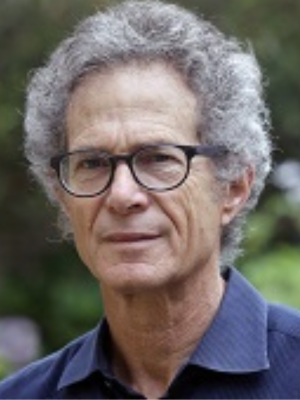
Professor Robert Horwitz
Department of Communication
Robert B. Horwitz is Professor Emeritus in the Department of Communication at UC San Diego. The focus of his scholarship is democracy, communication, and political reform. He is author of The Irony of Regulatory Reform: The Deregulation of American Telecommunications (Oxford, 1989), a critical history of US communications policy and regulation. Communication and Democratic Reform in South Africa (Cambridge, 2001) examined the reform of the communication sector from apartheid-aligned apparatuses to accountable democratic institutions. America’s Right: Anti-establishment Conservatism from Goldwater to the Tea Party (Polity, 2013) studied the rise of the particular form of American conservatism that has captured the Republican Party. Horwitz was Chair of the systemwide University of California Academic Senate, 2021-22.
Degrees: Ph.D. Sociology, Brandeis University; B.A., Social Thought & Institutions, Stanford University.
-
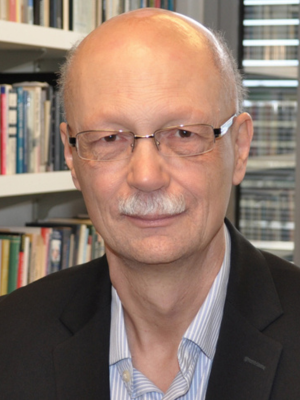
Professor David Lake
Department of Political Science
Previously a Distinguished Professor of Political Science and the Jerri-Ann and Gary E. Jacobs Professor of Social Science, Professor Lake has published widely in international relations theory and international political economy. He mentors and advises a large number of graduate students in Political Science as well as remaining research active.
Professor Lake's research is concentrated on International Relations theory, with a specialization in international political economy and U.S. foreign policy. He is widely published including six solo-authored books, the latest of which is Indirect Rule: The Making of U.S. International Hierarchy; has co-authored the world’s most widely used undergraduate textbook in international relations; and has published over 100 peer-reviewed articles and chapters.
Degrees: Ph.D., Cornell University; B.A., Clark University
-

Professor Michael Landry
Scripps Institution of Oceanography
Michael Landry is a Distinguished Professor of Oceanography in the Biological Oceanography group at SIO. Dr. Landry continues to interact with undergraduate and graduate students in his lab and perform important informal advising and mentoring activities.
Professor Landry’s research focuses on plankton food web ecology, specifically the complex interactions of bacteria, phytoplankton, protozoa and small metazoans at the base of ocean food webs, and the effects of physical, chemical and climate influences on the organization and dynamics of those assemblages. He has published over 230 peer-reviewed articles and is a Fellow of the American Association for the Advancement of Science.
Degrees: Ph.D., University of Washington; MBA, University of Washington; B.A., University of California, Santa Barbara
-
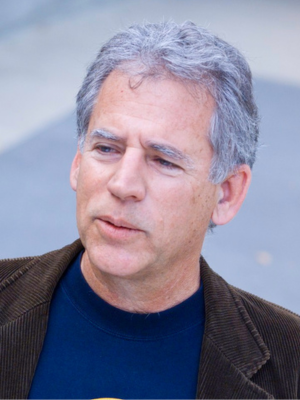
Professor Thomas Levy
Department of Anthropology
An anthropological archaeologist of complex societies, Dr. Levy now focuses on marine archaeology, climate change and cyber-archaeology in the eastern Mediterranean, specifically Israel and Greece. Tom supervises and mentors graduate students and is founder of the Qualcomm Institute's Center for Cyber-Archaeology and Sustainability, where he serves as co-director. Having published well over a dozen books and more than 250 articles in addition to being the recipient of numerous awards, Dr. Levy has recently been honored with the publication by Springer of a two-volume peer reviewed Festschrift, a mark of distinction recognizing the legacy of his groundbreaking and prolific scholarship.
Degrees: Ph.D., Archeology and Prehistory, University of Sheffield.
-
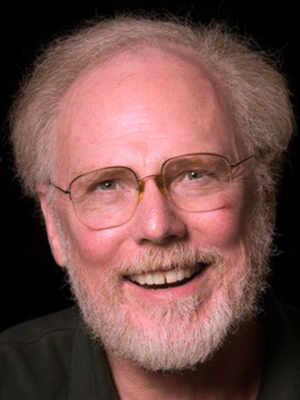
Professor J. Andrew McCammon
Department of Pharmacology
Department of Chemistry and Biochemistry
Previously the Joseph E. Mayer Professor of Chemistry and Biochemistry and Distinguished Professor of Pharmacology, Dr. McCammon's interdisciplinary research interests span physical chemistry, biophysics, and computational and theoretical chemistry. His group develops and applies computer simulation methods to study biomolecular structure, dynamics and function. With the molecular dynamics method, they use computers to solve the equations of motion of the atoms in enzymes, and to evaluate how well possible new pharmaceuticals bind. Students trained in his group can choose among a variety of career paths in universities, industry, or government laboratories. More than 80 of his former students and postdocs have gained tenure-track positions at leading universities and colleges, including five at UCSD.
Degrees: Ph.D., Harvard University; B.A., Pomona College
-
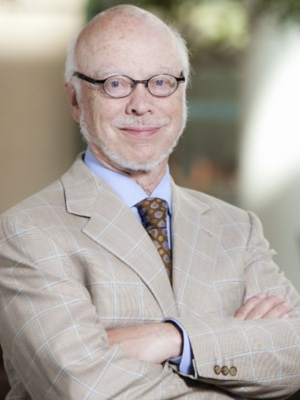
Professor James McKerrow
Skaggs School of Pharmacy and Pharmaceutical Sciences
Previously a Distinguished Professor of Pathology, Dean of the Skaggs School of Pharmacy and Pharmaceutical Sciences, and Associate Vice Chancellor for Health Sciences, Dr. McKerrow now focuses on the work of his lab screening for new drug therapy targeting human pancreatic adenocarcinomas. This is a unique project attempting to drive differentiation of pancreatic cancer metastases into benign tissues and is a collaboration with Janssen (J&J) in Del Mar.
Degrees: B.S., Haverford College; Ph.D., UC San Diego; MD, State University of New York.
-
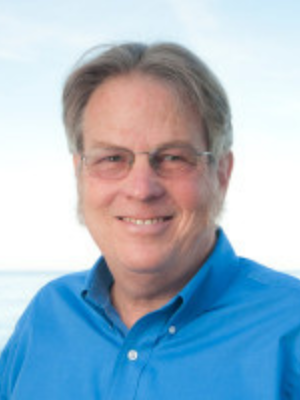
Professor Mark D. Ohman
Scripps Institution of Oceanography
A biological oceanographer, Professor Ohman’s research interests include the effects of climate change and climate variability on the California Current Ecosystem, the population ecology of marine zooplankton, copepod biology, demographic estimation methods, and the use of autonomous methods in zooplankton ecology. He founded and remains active in the California Current Ecosystem Long-Term Ecological Research site, supported by the U.S. National Science Foundation. Professor Ohman collaborates extensively internationally. He is the recipient of multiple awards for his teaching and research, and is a Fellow of the American Association for the Advancement of Science as well as a Sustaining Fellow of the Association for the Sciences of Limnology and Oceanography.
Degrees: Ph.D., Oceanography, University of Washington; M.A., Biology, California State University, San Francisco; B.A., Biology, University of California, Santa Cruz
-
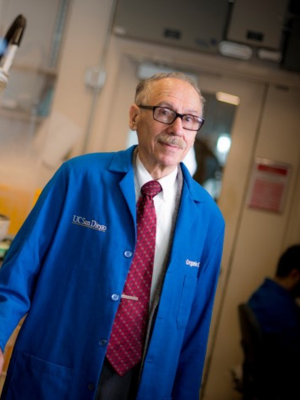
Professor Charles Perrin
Department of Chemistry and Biochemistry
Referred to as "The Icon of Organic Chemistry," Dr. Perrin is an internationally recognized leader in the area of physical organic chemistry. He has taught at UC San Diego for 60 years and continues to contribute in the areas of teaching, research and service. He served as Chair of an international Task Force that published a 180-page update of the IUPAC Glossary of Physical Organic Chemistry.
Degrees: Ph.D. and A.B. (scl), Harvard University.
-
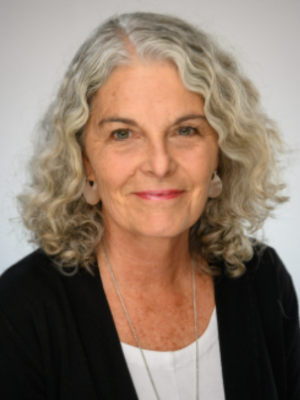
Nancy Postero
Department of Anthropology
Dr. Postero is a sociocultural anthropologist whose work examines the relation between race, politics, and political economy, focusing specifically on indigenous peoples of Latin America. She was also a criminal defense attorney, a human rights attorney, and a journalist prior to her career in academia.
She continues her engagement in scholarly and service activities for UC San Diego and the UC System, mentors graduate students, and serves several other students’ committees. Professor Postero continues her work with UC San Diego’s International Institute (II), which she co-founded, as well as her work on solidifying the foundation for the Scholars at Risk (SAR) project at UCSD and UC-wide.
Degrees: Ph.D, UC Berkeley
-
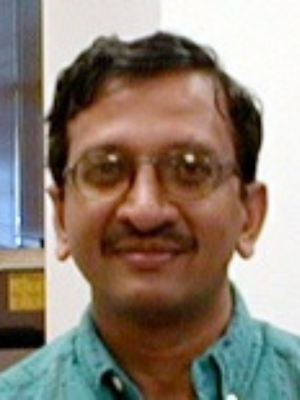
Professor Bhaskar D. Rao
Department of Electrical and Computer Engineering
Bhaskar D. Rao is a pioneer in the theory and use of sparsity in signal processing applications. Since co-authoring the first paper on the seminal FOCUSS algorithm in 1992, he has been driving the field of sparsity forward, including co-organizing the first special session on sparsity at ICASSP 1998. He has been teaching and conducting research at UC San Diego since 1983, where he is a Professor Emeritus in the Electrical and Computer Engineering department. He held the Ericsson Endowed Chair in Wireless Access Networks and Distinguished Professor until 2023 and was the Director of the Center for Wireless Communications from 2008 to 2011.
Professor Rao’s research interests are in the areas of digital signal processing, estimation theory, and optimization theory, with applications to digital communications, speech signal processing, and biomedical signal processing. His work has received several paper awards, including the 2012 Signal Processing Society (SPS) best paper award with David P. Wipf and the Stephen O. Rice Prize paper award in the field of communication systems with B. Song and R. L. Cruz.
Professor Rao was elevated to fellow of IEEE in 2000 for his contributions to the statistical analysis of subspace algorithms for harmonic retrieval. He received the 2016 IEEE Signal Processing Society Technical Achievement Award and the 2023 IEEE Signal Processing Society Norbert Wiener Society Award.
Degrees: Ph.D., University of Southern California; B.Tech., Indian Institute of Technology, Kharagpur.
-
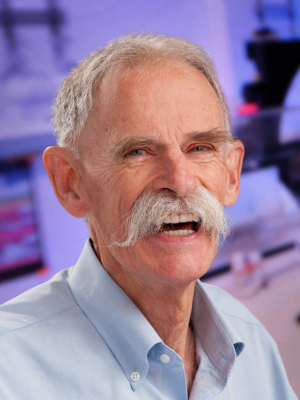
Professor Nicholas Spitzer
Division of Biological Sciences, Institute of Engineering in Medicine
Previously a Professor of Biological Sciences, Dr. Spitzer focuses on a form of neuroplasticity called neurotransmitter switching, in which neurons change the transmitters that they make and release in response to sustained sensory or motor activity. He has been described as "an icon at UC San Diego," having taught and researched on campus for over 50 years.
Professor Spitzer was founding editor-in-chief of BrainFacts.org at the Society for Neuroscience and a founding co-director of the Kavli Institute for Brain and Mind at UC San Diego.
Degrees: Ph.D., Neurobiology, Harvard University.
-
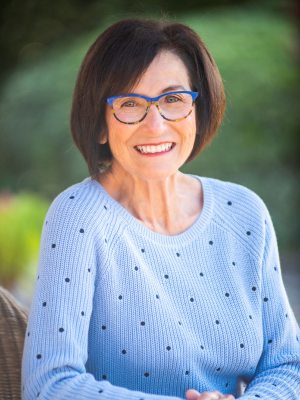
Professor Shirley Strum
Department of Anthropology
Professor Strum is a renowned biological anthropologist who specializes in primatology and has made enormous contributions to wildlife and habitat conservation. Dr. Strum has published important work during her time as an active professor at UC San Diego, and the baboons she studies have been included in 25 nature documentaries over the years. She continues to teach courses such as Conservation and Human Predicament and Conservation and the Media as well as mentor Masters and Ph.D. students.
A biological anthropologist specializing in primate studies, conservation, and science studies, Strum has studied one population of baboons in Kenya for 51 years. During that time her research has discovered new patterns in:
- The male dominance hierarchy showing that males rely on social strategies of aggression and defense;
- Social complexity in baboon social life;
- Cognition in the wild employing distributed cognition and situated action developed for humans and applied to baboons;
- How the social and ecological are entangled and the use and misuse of nonhuman primate models in evolutionary interpretations of humans.
Degrees: Ph.D., Anthropology, UC Berkeley.
-
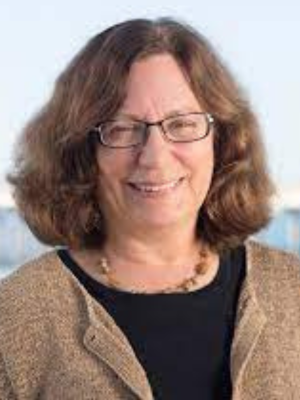
Professor Lynne Talley
Scripps Institution of Oceanography (SIO)
Previously a Distinguished Professor of Physical Oceanography in Climate, Atmospheric Sciences, and Physical Oceanography, Professor Talley continues her very active and well-funded research program which includes serving as co-PI for three large projects, SOCCOM, GO-BGC, and US GO-SHIP. Dr. Talley also mentors PhD students and a postdoc.
Talley’s research focuses on the general circulation of the ocean and the role of various oceanic and atmospheric conditions that affect ocean currents and property distributions, and the role of the ocean in climate. Her work involves analysis of data from most of the world’s oceans, depicting the movement of heat, salinity, and water masses, and the formation of water masses, particularly in subpolar regions. Her particular emphases over the last decade have been Southern Ocean processes and installation of a global biogeochemical profiling float array as part of an NSF-funded team.
Degrees: Ph.D., Oceanography, Massachusetts Institute of Technology/Woods Hole Oceanographic Institution; B.M., Piano performance, Oberlin Conservatory of Music; B.A., Physics, Oberlin College.
Past Professors of the Graduate Division
-
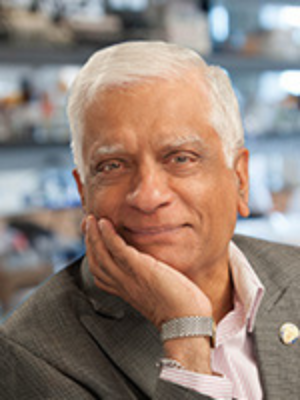
Professor Suresh Subramani
Department of Molecular Biology
Professor Subramani joined the faculty in the Department of Biology at UC San Diego in 1982 and retired in 2018. His service to UC has included serving as the Executive Vice Chancellor (2010-16), Associate Vice Chancellor (2009-10), Interim Dean of the Division of Biosciences (2006-07), and Chair of Biology (1999-2000). Dr. Subramani continues to exemplify excellence in research, teaching via mentorship, and service. He serves as the Global Director of the Tata Institute for Genetics and Society, which has efforts in San Diego and India, and is actively engaged in the School of Biological Sciences and the Department of Molecular Biology while also providing mentorship to undergraduate students and post-doctoral researchers.
Dr. Subramani has been a pioneer in the area of peroxisome biology. Abnormalities in peroxisome biogenesis are closely associated with the development of debilitating human diseases, including Zellweger syndrome, rhizomelic chondrodysplasia punctata and infantile Refsum disease. His current work focuses on the the trafficking of peroxisomal membrane proteins via the endoplasmic reticulum, their budding into pre-peroxisomal vesicles (ppV) and the proteins and mechanisms involved in this ppV budding;
Degrees: Ph.D., Biochemistry, UC Berkeley.
Learn more about Professor Subramani’s work here.
In Memoriam
-
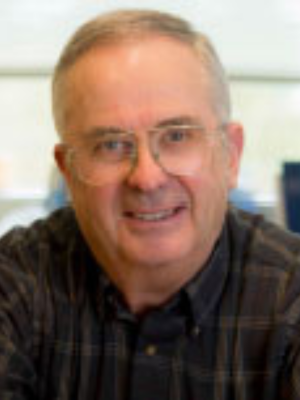
Professor Clifford Surko
Department of Physics
An internationally renowned plasma physicist and devoted mentor to students, Professor Surko came to UC San Diego in 1988 and retired in 2022. His contributions included pioneering research on waves and turbulence in tokamak plasmas and the development of the buffer gas positron trap, a groundbreaking invention that revolutionized antimatter research worldwide.
Professor Surko was a member of the American Physical Society and the American Association for the Advancement of Science. He was a recipient of the American Physical Society’s James Clerk Maxwell Prize for Plasma Physics for his outstanding lifetime contributions to the field.
Degrees: Ph.D., Physics; and A.B., Physics and Mathematics, UC Berkeley.
Proposition 209 Compliance
All programs and initiatives coordinated by the Division of Division of Graduate Education and Postdoctoral Affairs are designed and implemented in full compliance with Proposition 209 and the University of California Anti-Discrimination Policy.
More information about Proposition 209 can be found here.
More information about the University of California Anti-Discrimination Policy can be found here.